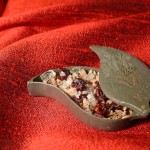
NICE have published public health guidance and a new care pathway to help people of South Asian origin who are living in England to stop using traditional South Asian varieties of smokeless tobacco.
These publications are focused on people with ancestral links to Bangladesh, India, Nepal, Pakistan or Sri Lanka and smokeless tobacco products such as Paan, Gutka, Shupari, and Betel Quid.
The guidance is for commissioners and providers of tobacco cessation services (including stop smoking services), health education and training services, health and wellbeing boards and health and social care practitioners.
The 6 recommendations cover:
- Assessing local need
- Working with local South Asian communities
- Commissioning smokeless tobacco services
- Providing brief advice and referral: dentists, GPs, pharmacists, and other health professionals
- Specialist tobacco cessation services (including stop smoking services)
- Training for practitioners
Professor Mike Kelly, Director of the NICE Centre for Public Health Excellence, said:
This guidance is an important opportunity to highlight the range of serious health risks associated with smokeless tobacco products, such as paan or gutkha, which are used by some people of South Asian origin. Often the people using these products aren’t aware that they contain tobacco, nor that they could be at greater risk of oral cancers or cardiovascular disease.
There’s also low awareness of the health problems caused by these smokeless tobacco products within mainstream NHS services. We hope that this guidance will inform health professionals of the risks posed by these products, so they can take action by asking patients of South Asian origin if they use smokeless tobacco, making sure they are aware of the health risks, and where appropriate referring people for support to help them stop using these products.
Links
Smokeless tobacco cessation: South Asian communities (PDF). NICE public health guidance 39, Sep 2012.
Smokeless tobacco cessation: South Asian communities overview. NICE pathway, Sep 2012.
